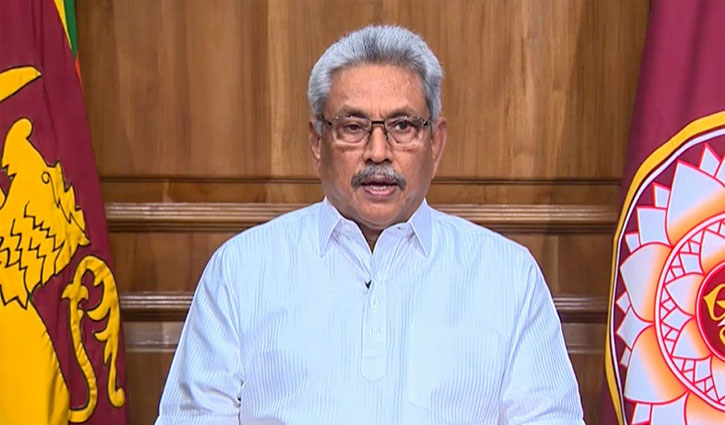Sri Lanka’s President, Gotabaya Rajapaksa, will on July 13 resign from office following massive protests that rocked the island country on Saturday, the country’s parliamentary speaker, Mahinda Abeywardana, said.
According to Mr Abeywardana, the president will remain in office until next Wednesday for a peaceful handover. “To ensure a peaceful transition, the president said he will step down on July 13,” Al Jazeera quoted Mr Abeywardana as saying in a televised statement.
The president had, in June, insisted on finishing the remaining two years of his term despite months-long protests calling for his resignation.
The 22 million Sinhalese people have been suffering a horrifying financial turmoil with severe shortages of fuel, medicine, food and other essentials amid record-high inflation and a devaluation of the country’s currency. A severe lack of foreign exchange has stalled imports.
The acute shortage of fuel has crippled transportation systems in the country and stopped children from going to school among others.
The same economic crisis and protests led to the resignations of Basil Rajapaksa, a brother to Sri Lanka’s president and the country’s former finance minister from parliament in June and their older brother Mahinda Rajapaksa, as prime minister in May.
The announcement of the president’s resignation came hours after protesters stormed his official residence to register their displeasure over the country’s severe economic crisis.
Videos emerged on social media of protesters in various parts of the official residence. However, the president had earlier been evacuated before their arrival.
The protesters later broke into Prime Minister Ranil Wickremesinghe’s residence and set it on fire.
Despite the fuel scarcity, citizens in their numbers stormed the capital, Colombo, from different parts of the country to protest against the untold hardship they face.
Sri Lanka is nearly bankrupt and has suspended repayment of its foreign loans with foreign reserves near empty.







